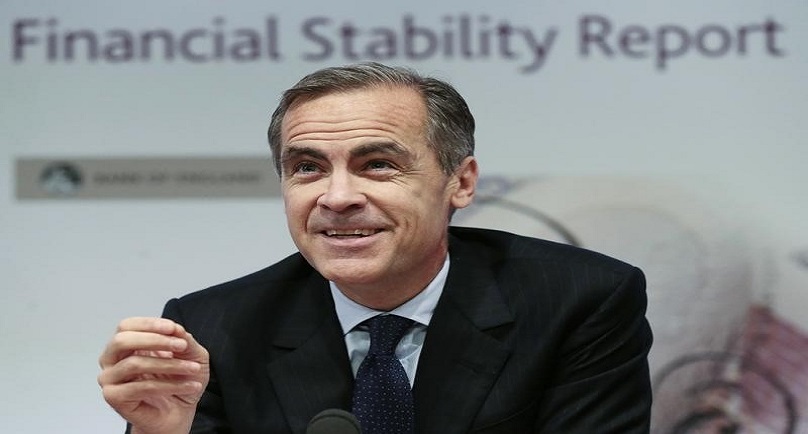Image: Mark Carney speaks during a news conference at the Bank of England in London, Britain, December 1, 2015. REUTERS/Suzanne Plunkett
By Huw Jones
LONDON (Reuters) – A global task force is to encourage businesses to make voluntary disclosures to help investors compare the risks that they face from climate change, Financial Stability Board Chairman Mark Carney said on Friday.
The FSB drafts global financial regulation for the Group of 20 economies (G20), whose summit in Turkey last month asked the board to look at how the financial sector can take account of climate-related issues.
Already, U.S. judicial authorities have begun forcing fossil fuel firms to disclose their own assessments of the risks they face from any increased regulation of greenhouse gas emissions to limit climate change.
“Access to high-quality financial information will allow market participants and policymakers to understand and better manage those risks, which are likely to grow with time,” Carney said at the Paris climate conference.
In September, Carney, who is also governor of the Bank of England, said one of the reasons for better disclosure was the risk that large assets such as fossil-fuel reserves could be “stranded” and rapidly lose value as the world tries to wean itself off carbon.
“What we don’t want to see is an abrupt transition,” he told a news conference on Friday.
The task force will be chaired by Michael Bloomberg, former mayor of New York and now the U.N. Secretary General’s special envoy for cities and climate change.
About 10 people will determine the scope and main objectives by the end of March. Another 20 will draft specific recommendations for voluntary disclosure principles and best practices by the end of 2016.
The report will consider the physical, liability and transition risks associated with climate change, and what constitutes effective financial disclosure.
Carney said the cost of weather-related claims for Britain’s insurance sector had gone up five-fold since the 1980s.
The FSB said there were currently 400 disclosure systems relating to climate or sustainability.
“We run the risk of getting lost in the right direction,” Carney said.
The New York state attorney general said last month that he was investigating oil giant Exxon Mobil Corp for the way it had disclosed risks associated with climate change in its statutory reporting.
A few weeks earlier, the same attorney general used securities law to order coal producer Peabody Energy to give investors more details about how its sales would suffer from measures to curb global warming.
Carney said giving investors more insight into firms’ exposure to and preparedness for climate change would plug a “market failure” and smooth the transition to a low-carbon economy.
“The one thing we are not doing as a regulator is making a judgment that there are bad industries from a climate perspective and you should not be lending to those industries,” Carney said.
(Writing by Huw Jones in London; Editing by Kevin Liffey)
Copyright 2015 Thomson Reuters. Click for Restrictions.


